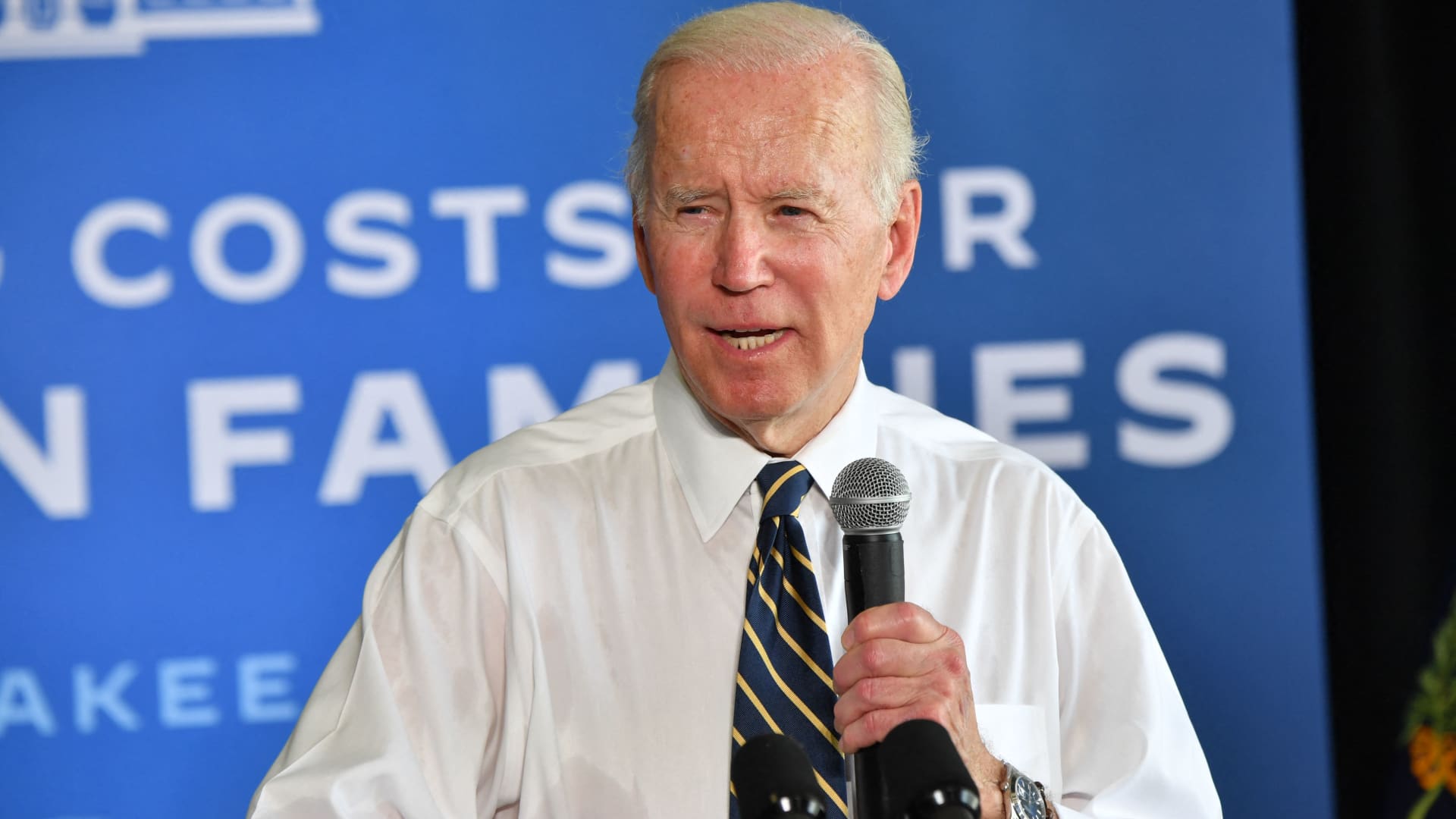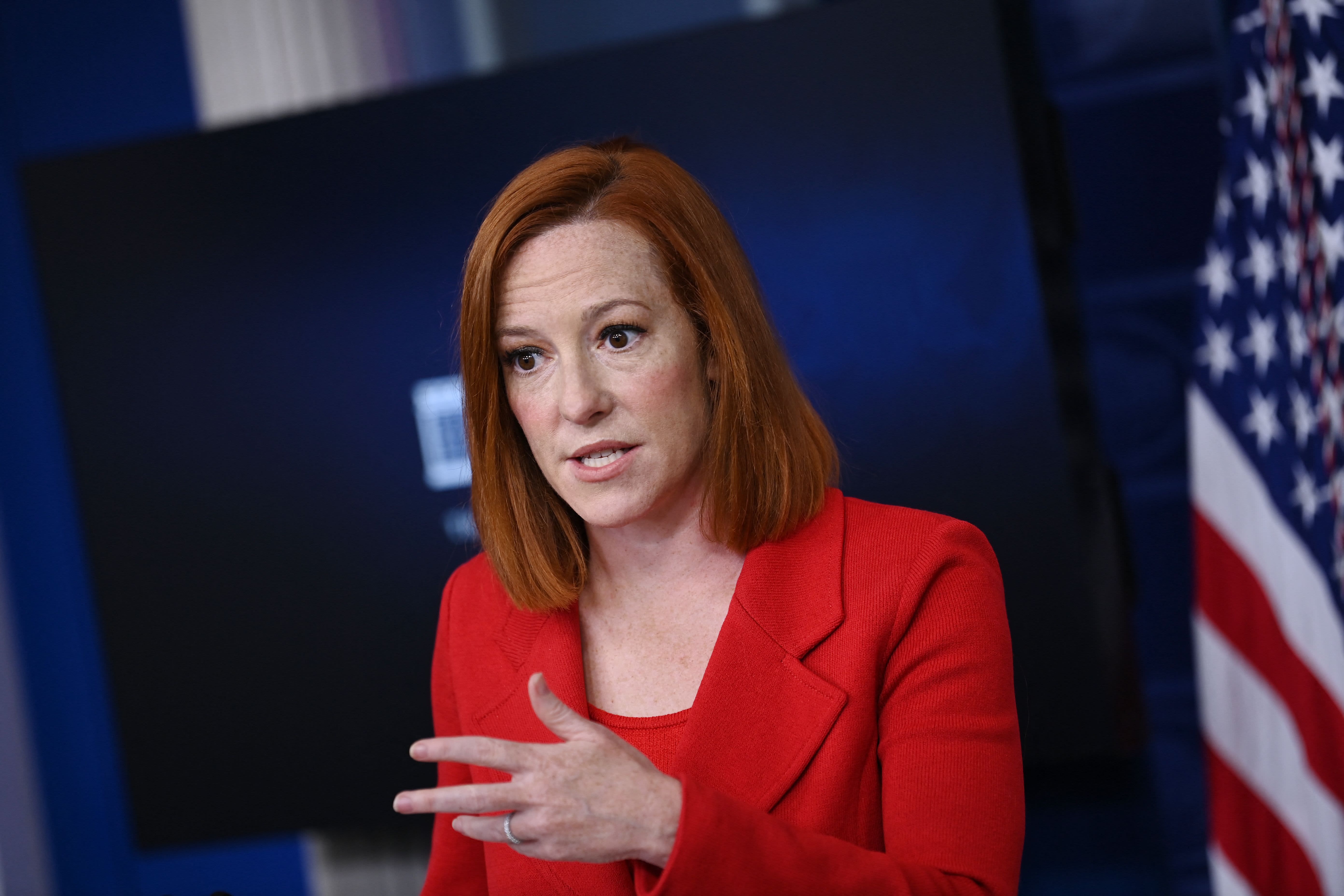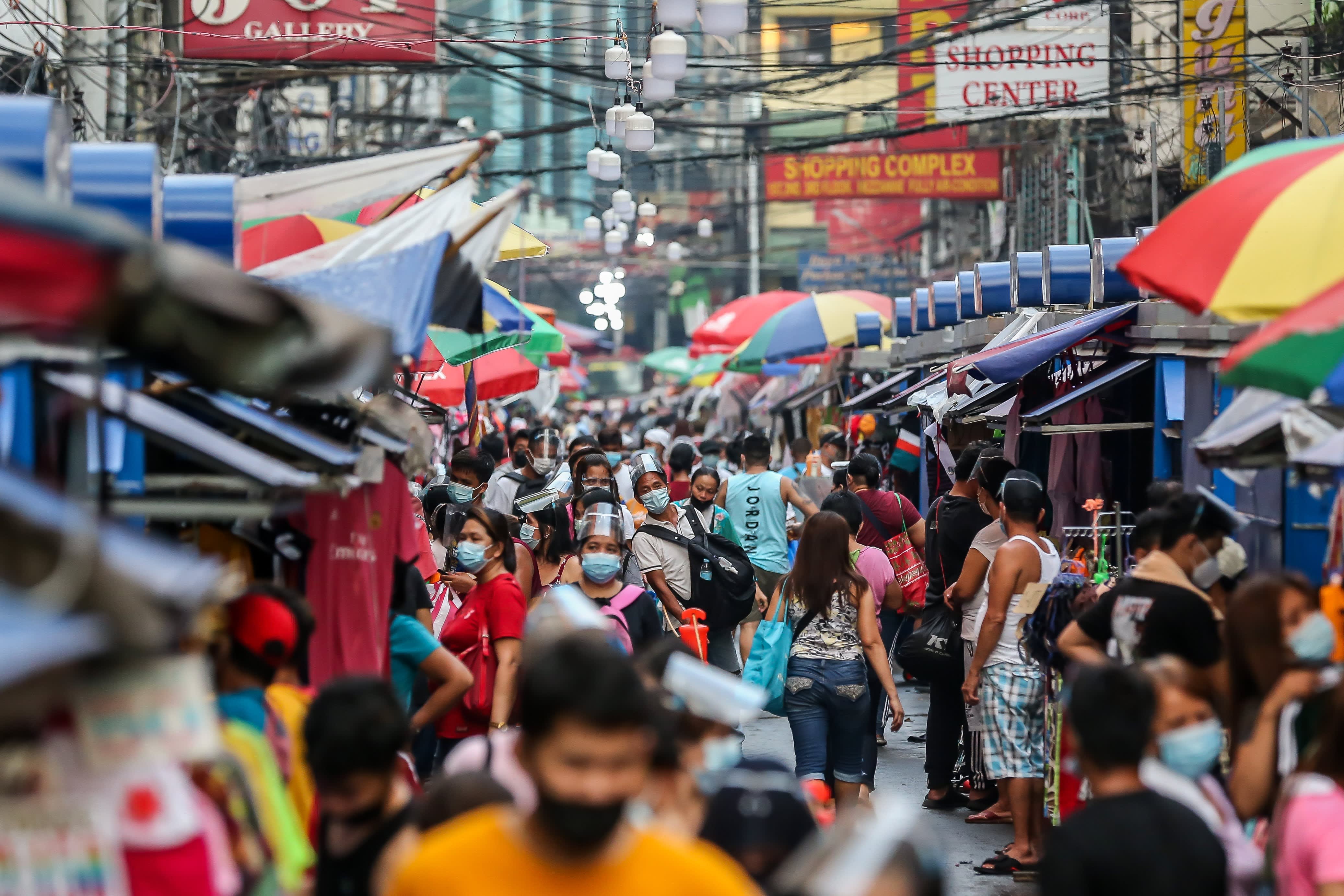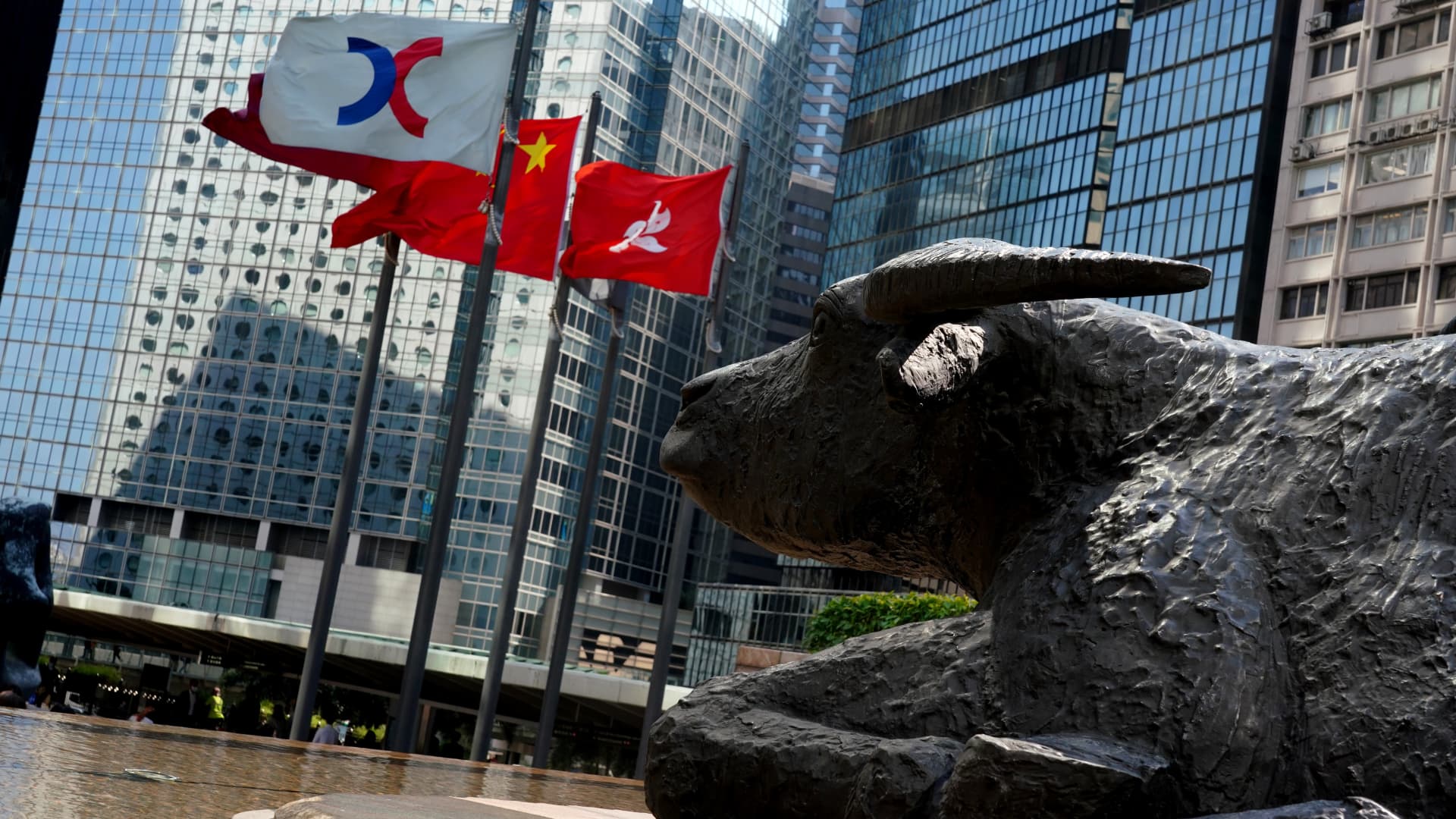India’s farmers are up in arms again. Will it hurt Modi’s reelection campaign?
While the protestors are beginning to up the ante by blocking railway tracks, the agitation this time seems a pale shadow of their movement in 2020.
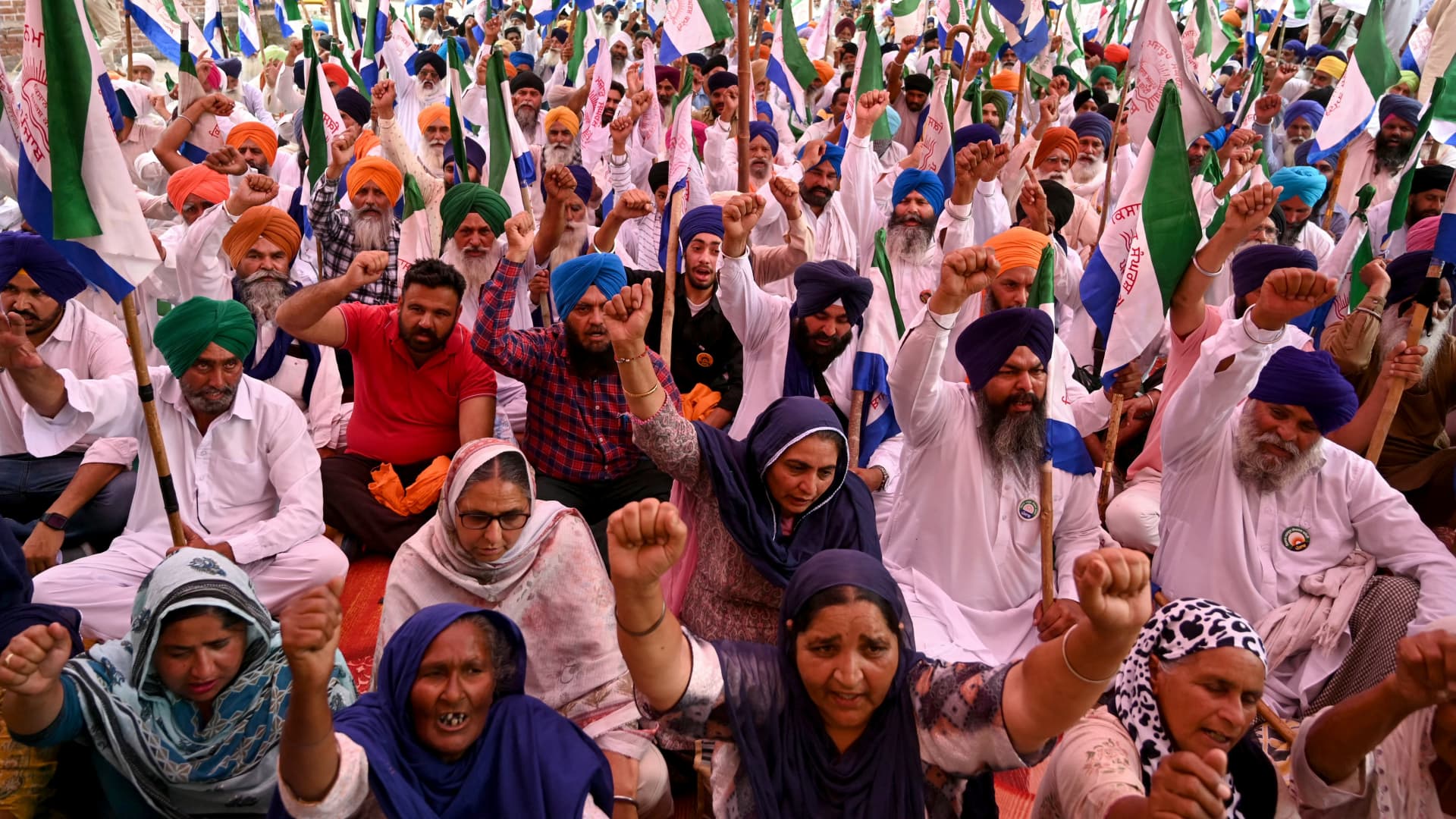
Farmers in India's Punjab state are raising the pitch of their ongoing protests, as the second phase of India's general elections starts April 26, 2024.
Narinder Nanu | Afp | Getty Images
NEW DELHI — Farmers in India's Punjab state are raising the pitch of their ongoing protests, as the second phase of India's general elections starts Friday.
Thousands of farmers continue to drum up support for their demands, foremost being a legal guarantee for minimum support prices for their produce.
They have occupied railway tracks in the northwestern state of Punjab, disrupting operations, with trains on 149 routes either being cancelled, diverted or journeys terminated midway on Wednesday, as they demand the release of farmers taken into police custody.
While the protestors are beginning to up the ante, the agitation this time, which began in February, seems a pale shadow of their movement in 2020 when hundreds of thousands of farmers took to the streets in a year-long protest against three farm laws.
In a rare policy setback for Prime Minister Narendra Modi, the farm laws were revoked in 2021.
This time, however, fenced in by barricades and under the watchful eyes of the state police and paramilitary forces, protests have been relatively low-key and largely restricted to Shambhu and Khanauri borders between the states of Punjab and Haryana in northern India.
Some of the prominent leaders from other states who participated in the earlier protests were also missing in action.
The government has shown no signs of capitulation, even as it risks losing support from the massive farmer population at a time when Modi is fighting to win a third term in the national elections.
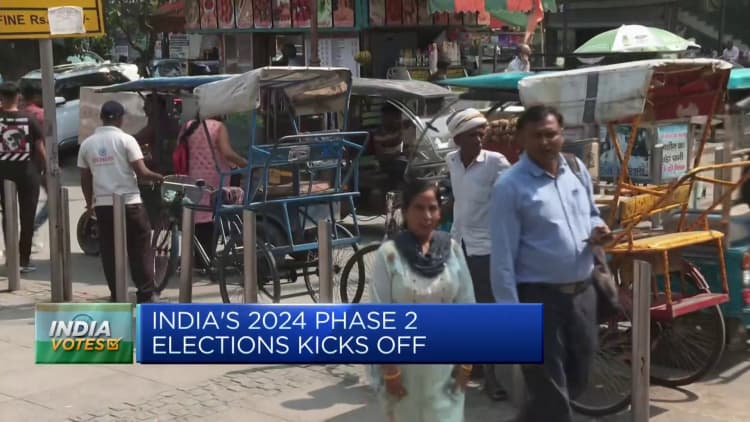
The Congress and several opposition parties have put farmers' demand about minimum support prices (MSP) in their manifesto, while the ruling Bharatiya Janata Party (BJP) has "steadfastly refused to acknowledge this demand, therefore it will have some effect [electorally]," said Yogendra Yadav, political activist and a former psephologist.
About 250 million people work in agriculture in India, according to government data, constituting about 45% of India's workforce.
People are "very sympathetic" to the farmers' cause due to the BJP's high-handedness in dealing with the protestors, according to Sanjay Kumar, co-director of Lokniti, a research program at the New Delhi-based Centre for the Study of Developing Societies.
A Lokniti-CSDS survey earlier this month showed 59% of the respondents found the farmers' demands "genuine," while 16% deemed the protests a "conspiracy" against the government.
The election juggernaut of Modi's BJP, however, is unlikely to be materially impacted by the ongoing agitation. Several surveys have forecast that the ruling party's victory is imminent in this national election.
Farmers shout slogans as they block railway tracks during a demonstration demanding compensations and jobs for the families of those who died during protests against the central government's agricultural reforms on the outskirts of Amritsar on December 24, 2021.
Narinder Nanu | AFP | Getty Images
Kumar said the protests were unlikely to cause any substantial dent to the BJP's electoral prospects.
"When farmers go to vote, it's not like they say: 'We are farmers so we must vote en masse to throw this government or support that government.' Often, they vote on party lines. Other identities take over," Kumar said.
The same survey showed 44% of the people wished to reelect the government, mostly on account of its "good work."
"People might have huge anxieties, but how does it matter if they end up voting for the same party. I don't see a major change in the outcome of 2024 elections compared with 2019 [when BJP won a second term]," Kumar said.
CNBC did not immediately receive a response from India's Agriculture Ministry on queries pertaining to the farmers' demands.
Stifling dissent?
Farm leaders have alleged that the government is trying to keep the protests contained to just Punjab and make it a local issue.
"When we started the protests, the government told us we could not bring vehicles, such as tractors to Delhi, but could come via public transport. However, when farmers from other BJP-ruled states tried to come to Delhi via trains and buses, they were detained," claimed farmer leader Jagjit Singh Dallewal, according to a CNBC translation of his statement in Hindi.
Reports from local media said dozens of farmers were detained.

Get a weekly roundup of news from India in your inbox every Thursday.
Subscribe now
A small of group of farmers from Tamil Nadu held a protest at Jantar Mantar in Delhi on Tuesday and Wednesday in solidarity with their peers from Punjab and Haryana. They said they had also participated in protests at the Shabhu border, the nerve center of the current demonstrations.
"We will now go to Varanasi and 1,000 people will file nominations against Modi," said P. Ayyakannu, the leader of the farmers from Tamil Nadu. Modi is contesting for a parliamentary seat from the city of Varansai in the state of Uttar Pradesh.
Dallewal, the convener of the Samyukta Kisan Morcha (non-political), a coalition on farmers' unions under which the current protests have been organized, said they will continue to protest, but the demands were not a political issue for them.
"We are sitting here as elections are on, so political parties have to take notice, and include our demands in their poll manifestos," Dallewal told CNBC.
What India's farmers want
Indian farmers' foremost demand is that of guaranteed minimum support prices — the lowest rate at which the government agencies can purchase crops from farmers — aimed at shielding them from wild market fluctuations.
The farmers want MSP for their agricultural produce to be determined according to the guidelines of the Swaminathan Commission on farmers. The Commission, which came out with five reports between 2004 and 2006, recommends MSP at a 50% profit over their production costs.
Other key demands include loan waivers, pensions for all farmers above the age of 60, a sharp increase in wages — nearly two to three times the current rates — as well as guaranteed employment for 200 days. They are also insisting that India withdraw from the World Trade Organization.
Several economists have said the farmers' demands are not economically viable.
"These demands are not just detrimental to the agricultural sector, but they will throw a major spanner in the economy. The entire economy will go into a tizzy," economist and a former chairman of the Commission for Agricultural Costs and Prices, Government of India, Ashok Gulati said.
Farm leaders who spoke to CNBC, including Dallewal, said their demands were not new and politicians including the prime minister have promised most of the things they are asking for in their past political campaigns.
Former IMF executive director, Surjit Bhalla, also a former member of prime minister's economic advisory council was critical of the demands.
"One of these days, we will all get real … since 2014, we have taken significant steps toward reality, but in certain areas, such as the agri sector, farm laws, we are still stuck in the 19th century," he told CNBC.
Arun Kumar, economist and a former professor at New Delhi-based Jawahar Lal Nehru university, disagreed. He said talk about the government being overburdened because of the farmers' MSP demand was misleading.
"The legal guarantee for MSP will come into play only if the price [of commodities] drops below a certain level. Only then the government will need to buy," Kumar told CNBC. "If the price doesn't fall below the MSP, the government does not have to buy anything. In fact, 95% of the produce could be sold in the open market."
— CNBC's Naman Tandon contributed to this story.

 Koichiko
Koichiko 







